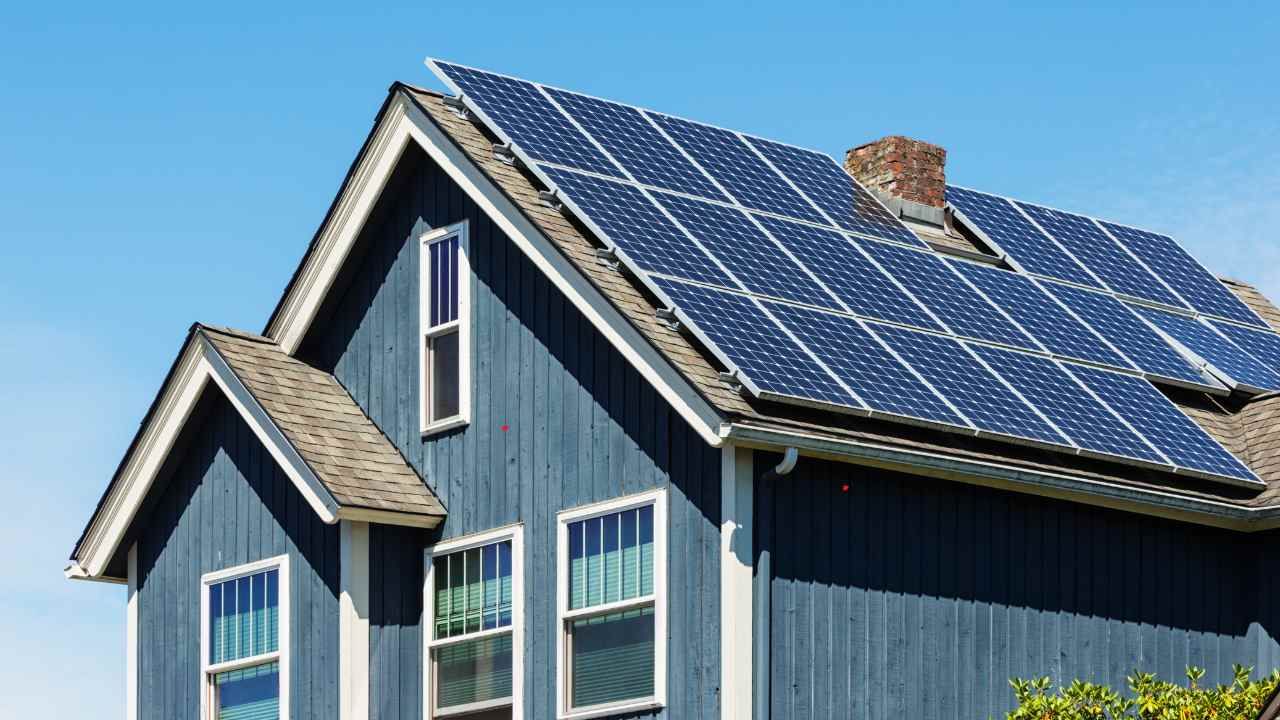Solar Roofing: Is It Worth the Investment?

As homeowners look for ways to save on energy costs and reduce their environmental footprint, solar roofing has become an increasingly attractive option. But is it really worth the investment? The answer depends on several factors, including energy savings, upfront costs, and long-term benefits. In this post, we’ll break down the pros and cons of solar roofing to help you decide if it's the right choice for your home.
The Benefits of Solar Roofing
One of the biggest reasons homeowners consider solar roofing is the potential for significant energy savings. By generating your own electricity, you can reduce—or even eliminate—your monthly utility bills. The average homeowner in sunny regions can save thousands of dollars over the lifespan of their solar panels.
Other benefits of solar roofing include:
- Environmental Impact – Solar energy reduces reliance on fossil fuels, lowering greenhouse gas emissions and contributing to a cleaner planet.
- Increased Home Value – Homes with solar panels tend to sell faster and at higher prices compared to those without. Buyers are often willing to pay a premium for energy-efficient features.
- Incentives and Tax Credits – Many federal, state, and local programs offer incentives for installing solar panels, making the initial cost more manageable. The federal solar tax credit, for example, allows homeowners to deduct a percentage of their solar installation costs from their taxes.
The Upfront Costs of Solar Roofing
While the long-term savings are enticing, solar roofing does come with a significant upfront investment. The cost of installation varies depending on the size of the system, type of panels, and labor costs. On average, homeowners can expect to pay anywhere from $15,000 to $25,000 for a complete solar roofing system before incentives.
Additional factors that influence cost include:
- Roof Condition – If your roof is aging or damaged, you may need repairs or even a full roof replacement before installing solar panels.
- Energy Usage – Homes with higher energy consumption may require larger systems, increasing the initial investment.
- Financing Options – Many solar companies offer financing plans, including solar loans and leasing options, which can make solar more accessible without a large upfront payment.
How Long Does It Take to See a Return on Investment?
The return on investment (ROI) for solar roofing depends on factors like electricity rates, solar incentives, and how much sunlight your home receives. On average, homeowners break even on their investment within 6 to 12 years. Since solar panels typically last 25 to 30 years, that leaves a significant period of energy savings after the system has paid for itself.
Net metering programs also play a crucial role in ROI. Many utility companies allow homeowners to send excess energy back to the grid, earning credits that offset future energy use. This means your solar panels could continue providing financial benefits even when you’re not actively using electricity.
Case Studies: Homeowners Who Made the Switch to Solar Roofing
Many homeowners have embraced solar roofing and seen significant benefits in energy savings and home value.
One homeowner installed solar panels along with a new energy-efficient roof and saw their electric bill drop by 75% within the first year. Thanks to tax incentives and net metering, they expect to break even on their investment in just eight years while enjoying decades of additional savings.
Meanwhile, another homeowner looking to increase their home’s resale value opted for solar roofing before listing their property. The home sold faster than comparable listings, and the buyers cited the energy-efficient upgrades as a key selling point.
These real-world examples show that solar roofing can be a game-changer, offering both financial and environmental rewards.
Is Solar Roofing Right for You?
While solar roofing offers undeniable benefits, it’s not the right choice for everyone. If your home is heavily shaded, your energy savings may not justify the investment. Additionally, if you’re planning to move within a few years, you may not be able to fully recoup your costs.
That’s why working with a trusted residential roofing contractor in Oneonta AL is essential to determining if your home is a good candidate for solar. A professional can assess your roof’s condition, sun exposure, and energy needs to provide an accurate estimate of costs and savings.
Final Thoughts
Investing in solar roofing is a long-term commitment, but for many homeowners, the financial and environmental benefits outweigh the costs. Whether you’re interested in reducing energy bills, increasing your home’s value, or making an eco-friendly choice, solar roofing is a step in the right direction.
For homeowners considering solar alongside roof replacements, it's important to choose a contractor experienced in both traditional and solar roofing solutions. Companies like Royal Roof Contractors LLC can guide you through the process and ensure your investment is built to last.
If you’re ready to explore your solar roofing options, contact an Alabama roofing expert today to see if solar is the right fit for your home.
Ready to work with Royal Roof Contractors?
Let's connect! We’re here to help.
Send us a message and we’ll be in touch.
Or give us a call today at (205) 274-7663

